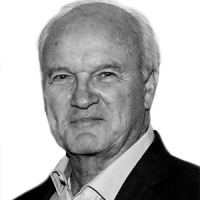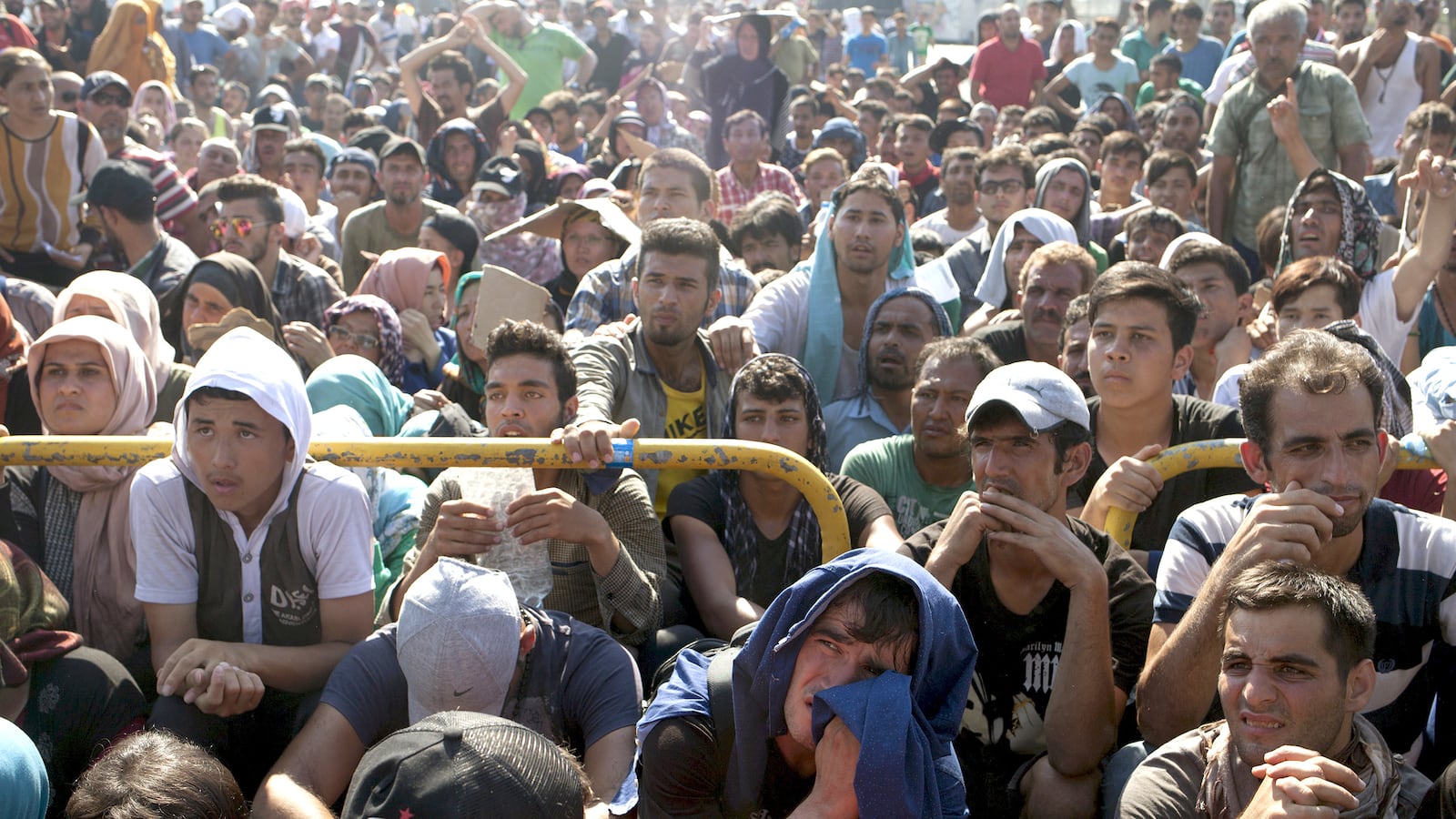In the city where I grew up the town and the region around it was filled with people from far away places where danger and death had dominated their lives, forcing them to flee. It was a few years after World War II ended and much of their fear but none of their memories had been replaced with gratitude for where they lived and worked now, the United States of America.
They arrived from Russia, Germany, Poland, Italy, Hungary, Czechoslovakia, Greece, France, and a few from China. They came as strangers who spoke different languages, some with children, others with nothing but misery in their rear-view mirror.
They were tailors, laborers, a couple doctors, musicians, barbers, teachers, accountants, and simple housewives, whole families that had been displaced and made casualties of fighting and hate that had not discriminated when it made so many human beings casualties of a conflict that dominated several continents.
Now, decades later there are others on the march, their struggle to escape similar torment and trouble being met with a fairly large dose of global indifference until one picture exposed the world to a growing parade of victims. The snapshot, of course, displayed the body of 3-year-old Aylan Kurdi, taking a nap on a beach in Bodrum, Turkey. He wore blue shorts, a red T-shirt, his arms by his side on the sand, face half-turned, eyes shut, the waves of blue water gently lapping the sand in the background. But he was not asleep. He was dead.
His mother, Rihan, was also dead. And so was his 5-year-old brother Galip. All of them drowned when a small boat the family boarded to escape Syria capsized and sunk. Their father, Abdullah, survived only to be left with a life empty of his family but filled with remorse, regret and the reality of what war in Syria had given him: a hole in his heart that cannot ever be filled.
The world is an increasingly dangerous, troubled place. There are nations that seem to be ungovernable. Nations where violence and religious combat are as common as the sunrise.
There are countries built on a foundation of exporting terror. Other countries more determined to acquire weapons than create work for their citizens. They are led by people, almost none elected freely, who are either paranoid, corrupt, evil or incompetent. Many of them pose a daily and often lethal threat to all of us but none are in the direct line of fire more than their own citizens.
So, the sensible and the scared flee. They sell everything they have and leave behind all they’ve managed to acquire to escape places where prosperity and peace seem like a distant, absurd dream. They pay, to them, what amount to small fortunes to board boats that sink, walk miles more dangerous than dynamite, cross borders that are blocked, to try to enter countries that ignore their vivid plight.
This is another shame of history.
In Europe, this human catastrophe has been greeted largely by chaos and political conflict. War in Syria and Iraq have destroyed those countries, pushing millions into Jordan and Turkey. For thousands, life boils down to a simple decision: risk death where they were born or risk death trying to escape.
Yesterday, the pope spoke about the sights and sounds that have amazingly been largely ignored by too many world leaders: “May every parish, every religious community, every monastery, every sanctuary of Europe host a family, starting from my diocese of Rome.”
In the United States, the calamity consuming Europe is so far just another clip on TV, one more sad story streaming across a screen of a smart phone or a tablet. We have our own problems and our own politicians either trying to light fires or put out one blaze after another over the issue of our own recent immigrants, many here illegally for years without papers.
The solutions range from the absurd to the impossible because our politics have become so damaged by fear, demagoguery, and a fierce focus on ideology rather than the possibility of agreeing on something that works. Common sense becoming the ultimate casualty of candidates who listen to big money, pollsters, and handlers more than their own soul or conscience.
And that picture, the one that captured the world’s attention for—what?—an hour, a day, a couple of news cycles? The shot of dead, 3-year-old Aylan Kurdi lying on a beach in Turkey, looking just like a tired little boy after a day running in the water, building sand castles, exhausted from fun? That’s pretty much forgotten, gone like skywriting quickly disappears.
So we get back to business here in the United States this week. Summer is on its last official legs. Labor Day brings a new season in a land where not that long ago we actually did something to help absorb those who had made the same dangerous journey the Kurdi family made.
America provided things that form the foundation of who we used to be: the prospect and potential of hope, mercy and freedom for strangers who came carrying not much more than a determination to survive in a big country with a bigger heart. The question is: Who are we now?





